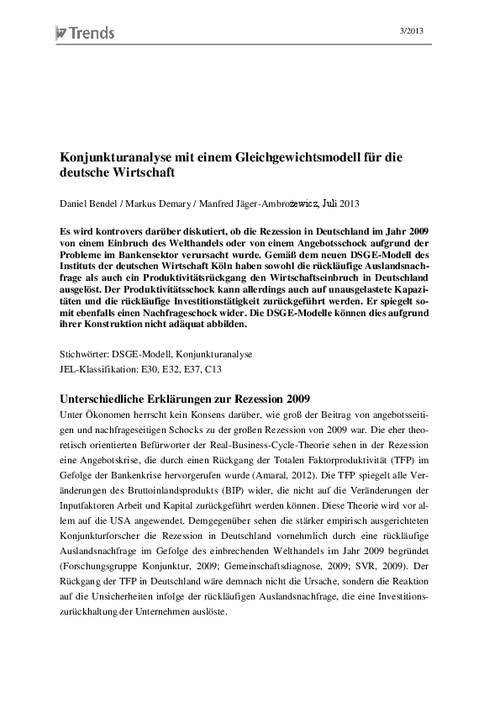Controversy rages as to whether the recession in Germany in 2009 was caused by a slump in world trade or by a supply shock due to the problems in the banking sector. According to the new DSGE model developed by the Cologne Institute for Economic Research (IW Köln) the severe downturn in the German economy was triggered by both declining foreign demand and a drop in productivity. However, the productivity shock can also be ex-plained by surplus capacity and declining investment activity. To this extent, therefore, it also reflects a demand shock, though, due to their structure, the DSGE models cannot adequately describe this.

Business Cycle Analysis with an Equilibrium Model for the German Economy
IW-Trends


Daniel Bendel / Markus Demary / Manfred Jäger-Ambrożewicz: Konjunkturanalyse mit einem Gleichgewichtsmodell für die deutsche Wirtschaft
IW-Trends

More on the topic

Effects of the Middle East conflict on the German economy
Beyond the humanitarian crisis associated with the geopolitical conflict in Israel, which affects millions of human lives, the Middle East conflict also leaves lasting marks on economic activity not only in the affected region, but also in Germany and the ...
IW
Corporate Insolvencies on the Increase
After a prolonged decline, the number of corporate insolvencies has begun to rise again. The slight increase in 2022 could be interpreted as a step towards normalisation after the sharp drop experienced during the 2020/21 Covid19 pandemic.
IW